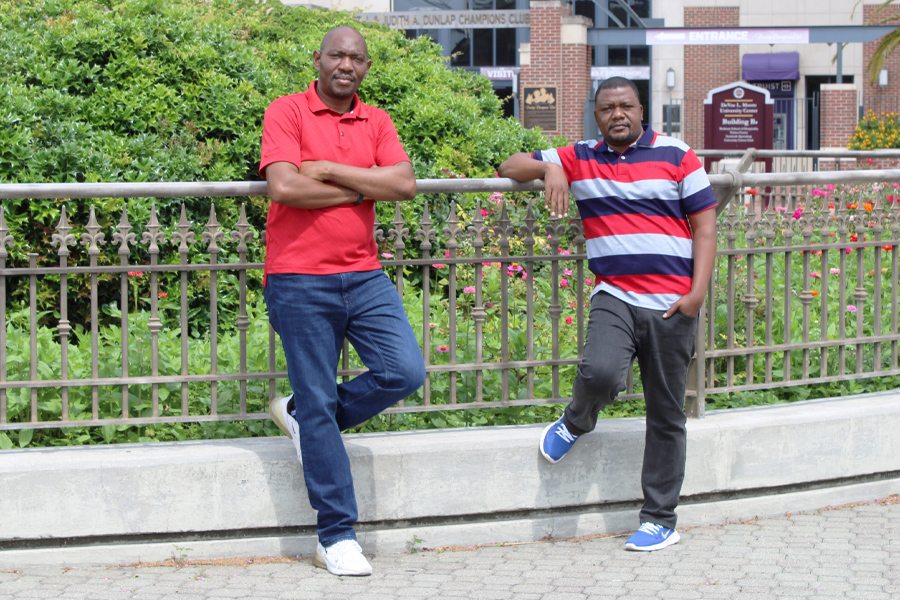
Two Zambian educators are working hand-in-hand with FSU researchers as they look to improve teacher training in their country.
Handili Jimaima and Joshua Zulu, who teach at Chalimbana University in Chongwe, Zambia, participated in a residency program at FSU during the 2022 Spring semester as part of a Learning Systems Institute (LSI) project. In partnership with the U.S. Agency for International Development (USAID), the Transforming Teacher Education (TTE) project works with School-to-School International and the University of Zambia.
While FSU faculty and staff are in Zambia conducting a range of training and professional development initiatives, a key component to the program’s long-term success is the residency of Zambian educational leaders at FSU. This pair is part of a group of six fellows visiting the university as part of this program. A previous program saw six teachers from Bayero University Kano in Nigeria complete residencies between 2018 and 2020.
Since mid-January, Jimaima and Zulu have been at FSU learning, observing and training so they can influence generations of teachers and students when they return home in June.
“Many education capacity development projects are short — too short to have a lasting impact on knowledge and pedagogy,” said principal investigator Stephanie Zuilkowski of LSI. “This project aims to ensure that there is also deep investment in key individuals who can be leaders in their field long after the project has ended. The fellows are key to Transforming Teacher Education’s sustainability plans.”
For Jimaima and Zulu, a typical week during the residency involved most of their time spent in the classroom, interacting with Florida State professors and students and conducting research. The pair reviewed reading courses that FSU offers to literacy teachers and studied concepts such as learner-centered lessons, peer teaching and the awareness of individual sounds in spoken language to improve materials and teaching methods for Zambian teachers.
“One of the biggest differences is how the material is presented to students in the lectures,” Zulu said. “It is student-centered learning here. At home, we teach theoretically, and here at FSU, it is more practical.”
They also learned about technology aids that help teachers deliver lessons and students learn and practice new skills.
“The use of technology is excellent at FSU,” Jimaima said. “It made lesson delivery easier and allowed students an easy way to gain access to study materials before lessons and lectures. This enabled students to fully participate in class discussions. The use and type of technology helped students retain and apply what they discover on their own through reading. Basically, the use of technology made it possible to have learner-centered lessons.”
The residency program offers an opportunity for the fellows to influence generations of teachers and, in turn, students for decades to come. The lessons the pair learned in Tallahassee will be put into practice immediately upon their return to Zambia in June.
“I hope they take away with them a variety of types of knowledge, including current evidence on early grade reading and pre-service teacher training and greater knowledge of research methods,” Zuilkowski said. “They have developed international networks with literacy scholars, both at FSU and elsewhere, through participation in conferences. Also, they have had the opportunity to observe excellent pre-service teacher training at FSU, which we hope will support the broader changes that Transforming Teacher Education is promoting in the Zambian system.”
The Learning Systems Institute (LSI) at Florida State University is at the forefront of developing innovative solutions that bridge theory and practice in education. Our experts’ advanced research not only provides state-of-the-art methods but also a clear path for implementation. For more than 50 years, LSI has delivered systems that measurably improve the learning and performance of organizations and individuals here in Florida and across the world.
The U.S. Agency for International Development administers the U.S. foreign assistance program providing economic and humanitarian assistance in more than 80 countries worldwide.




